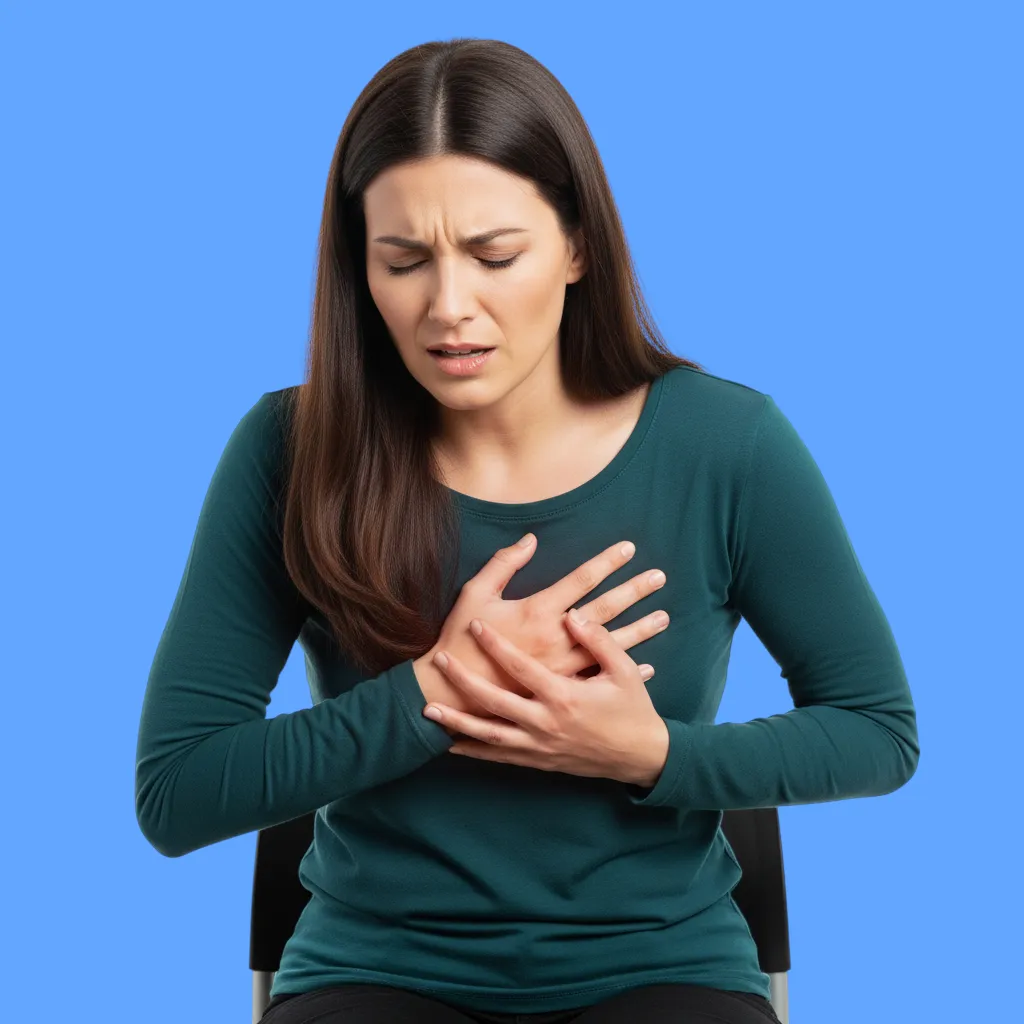What is a heart attack?
A heart attack is a medical emergency that occurs when blood flow to a part of the heart muscle is blocked, usually due to a blockage in one of the coronary arteries.
This blockage is often caused by the buildup of fat and cholesterol inside the artery walls, leading to the formation of plaques that may rupture and cause a blood clot, which blocks the blood flow.
When blood cannot reach the heart muscle, it becomes damaged, and this can be life-threatening if not treated quickly.
What are the causes of heart attack?
There are several common causes of heart attack, including:
- Buildup of fat and cholesterol in the coronary arteries
- Chronic high blood pressure
- Smoking or exposure to secondhand smoke
- High levels of bad cholesterol or triglycerides
- Diabetes
- Obesity and excess weight
- Severe or ongoing psychological stress
- Drug abuse, such as cocaine
- Family history of heart disease
- Lack of physical activity and sedentary lifestyle
- Unhealthy diet
What are the common symptoms of heart attack?

There are several common symptoms that a patient may experience, including:
- Severe pain or pressure in the center or left side of the chest
- Pain that spreads to the arm, shoulder, jaw, neck, or back
- Shortness of breath
- Sudden cold sweating
- Feeling dizzy or lightheaded
- Nausea or indigestion
- Unexplained fatigue
- In some cases, symptoms may not be obvious, especially in people with diabetes or the elderly
When should you see a doctor?
It is recommended to seek medical attention immediately if any of the following occur:
- Chest pain lasting more than a few minutes or that comes and goes
- Severe shortness of breath
- Sudden cold sweating
- Dizziness or loss of consciousness
- Pain spreading to the arm, jaw, or back
- Unexplained anxiety or fear
How is a heart attack diagnosed?
The condition is diagnosed using several methods, including:
- Electrocardiogram (ECG): Detects changes in the heart's electrical activity
- Blood tests such as troponin and CK-MB: Identify damage to the heart muscle
- Echocardiogram (heart ultrasound): Assesses heart function and valve movement
- Cardiac catheterization: Examines coronary arteries and locates blockages
- X-rays or CT scans: Evaluate the condition of the heart and lungs
What are the treatment options for heart attack?
There are several ways to treat the condition, including:
- Giving aspirin to reduce blood clotting
- Using anticoagulant medications like heparin
- Administering nitroglycerin to widen the arteries
- Performing cardiac catheterization and placing a stent
- Cardiopulmonary resuscitation (CPR) in case of cardiac arrest
- Using a defibrillator in emergencies to restore normal heart rhythm
- Coronary artery bypass surgery to improve blood flow to the heart
Can a heart attack be cured?
Yes, a heart attack can be treated successfully if medical intervention occurs quickly. Recovery depends on the speed of treatment, the extent of heart muscle damage, and lifestyle changes after the event.
Some patients recover completely, while others require ongoing follow-up and lifelong medication.
What are the tips for preventing heart attack?
There are several tips to help prevent heart attack, including:
- Quitting smoking
- Following a healthy diet rich in vegetables and fruits
- Exercising regularly
- Controlling blood pressure and blood sugar levels
- Reducing stress and psychological pressure
- Maintaining a healthy weight
- Avoiding saturated fats and fast food
- Having regular heart checkups
What are the possible complications of heart attack?
Some complications may occur if treatment is delayed, such as:
- Irregular heart rhythms or ventricular fibrillation
- Chronic heart failure
- Sudden cardiac arrest
- Inflammation of the heart lining (pericarditis)
- Cardiogenic shock
- Sudden cardiac death
Frequently asked questions about heart attack
Can a heart attack occur without chest pain?
Yes, especially in women, the elderly, and people with diabetes.
Is a heart attack different from cardiac arrest?
Yes, a heart attack is a blockage in an artery, while cardiac arrest is when the heart stops working.
Can heart attacks be prevented?
Absolutely, through a healthy lifestyle and regular checkups.
Do heart attacks happen more than once?
Yes, if treatment and prevention are not followed properly.